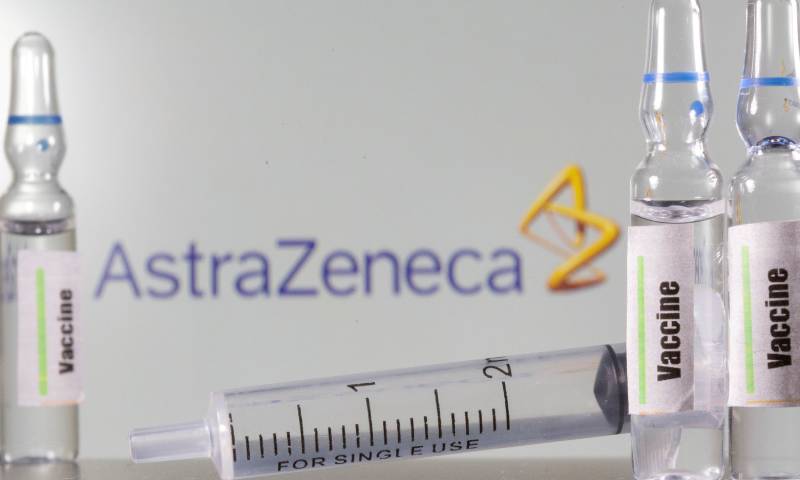Idlib Health Directorate will start the first phase of vaccination against coronavirus (COVID-19) next March, to complete vaccination when more doses arrive in the region, as it expects an allocation of 850,000 doses of the Oxford University developed AstraZeneca vaccine.
COVID-19 file official in Idlib Health Directorate, Dr. Hussam Kara Mohammed, told Enab Baladi that the directorate has worked with partners in humanitarian organizations as well as the World Health Organization (WHO) as a key partner to secure the coronavirus vaccine for the people of the liberated areas.
Starting next March, 60,000 medical personnel working on the ground will be vaccinated as they are most vulnerable to infection, Mohammed added.
According to Mohammed, the final plan will then be implemented to vaccinate almost 20% of the population in northwestern Syria, that is 150,000 doses of vaccine.
The directorate aims to vaccinate those at greater risk of infection, including people over 60 years, health professionals, and persons with comorbidities.
The northwestern Syrian regions will receive allocations of the Oxford-AstraZeneca vaccine, Mohammed said, noting that there are fears of the vaccine; however, it will be optional and not mandatory.
The directorate’s medical staff members will be among the first to receive the vaccine, Mohammed said. The vaccine will be subject to the directorate’s partial pharmacological control standards, and the staff will be asked to present authorizations to work and receive vaccinations.
On 15 February, the WHO listed the AstraZeneca-Oxford COVID-19 vaccine for emergency use, giving the green light for these vaccines to be rolled out globally through the COVAX Facility for fair distribution of vaccines worldwide.
The Syrian Interim Government (SIG) Minister of Health, Dr. Maram al-Sheikh, said that the ministry is coordinating with all relevant partners, most notably the United Nations International Children’s Emergency Fund (UNICEF), the WHO, and the Syrian Immunization Team, to deliver the vaccines next April.
The vaccination process is still in the operational planning phase, pending the approval of the overall plan by the COVAX initiative, the SIG’s Information Service cited Mohammed on 19 February.
The number of doses initially proposed is about 1 million and 700,000 doses to cover 850,000 people, about 20% of the region’s entire population, Mohammed said.
The vaccination will be conducted in three stages, the first of which will cover 20% of the population during the current year over three or four batches. The first stage will target about 20% of the population with priority to health professionals, people with comorbidities, and those over 55 years.
According to the minister, the course of the pandemic in northwestern Syria is declining, and the epidemiological curve has clearly fallen over the last four weeks, with only one new coronavirus case recorded in the previous days.
The WHO-affiliated facility, COVAX, announced that it had allocated more than 1 million doses of the AstraZeneca-Oxford vaccine for Syria.
According to COVAX’s list of countries to be distributed COVID-19 vaccines, Syria was designated with allocations of 2 million and 20,000 doses, as an initial forecast by the COVAX initiative.
The WHO listed Syria among the 92 low-income countries that will receive the coronavirus vaccine once it is adopted.
Likely supply lines
While the routes through which the vaccines will be delivered to Syrian territories controlled by different authorities are still undefined, the Regional Director of SAMS Turkey, Dr. Mazen Kewara, said that vaccines are most likely to arrive in northwestern areas through the WHO and UNICEF affiliated offices in Gaziantep city on the Turkish-Syrian border or through monitoring offices on border crossings.
In northwestern Syria, the WHO is cooperating with the Syrian Immunization Team—an alliance of the health organizations operating in the region, which have been carrying out all vaccination campaigns for the past three years, including polio and measles vaccination drives, Dr. Kewara said.
The team is also to handle the COVID-19 vaccine distribution in the area, enforcing a specific protocol that coordinates all organizations’ activity in northwestern Syria. The protocol will ensure that the first phase of vaccination, targeting health sector workers, will proceed smoothly and efficiently, Dr. Kewara added.
Head of Mission and WHO Representative in Syria, Dr. Akjemal Magtymova, informed Enab Baladi through email that “WHO will support the transport of the vaccines across Syria and coordinate the mobile activities on the ground with different stakeholders, based on the existing operations.”
“The implementation across the country will follow the current experience of the Expanded Programme for Immunization (EPI) microplanning through the fixed facilities (hospitals and PHC centers) and mobile teams,” Magtymova added.
This report was prepared with the contribution of Enab Baladi’s correspondent in Idlib, Anas al-Khouli











